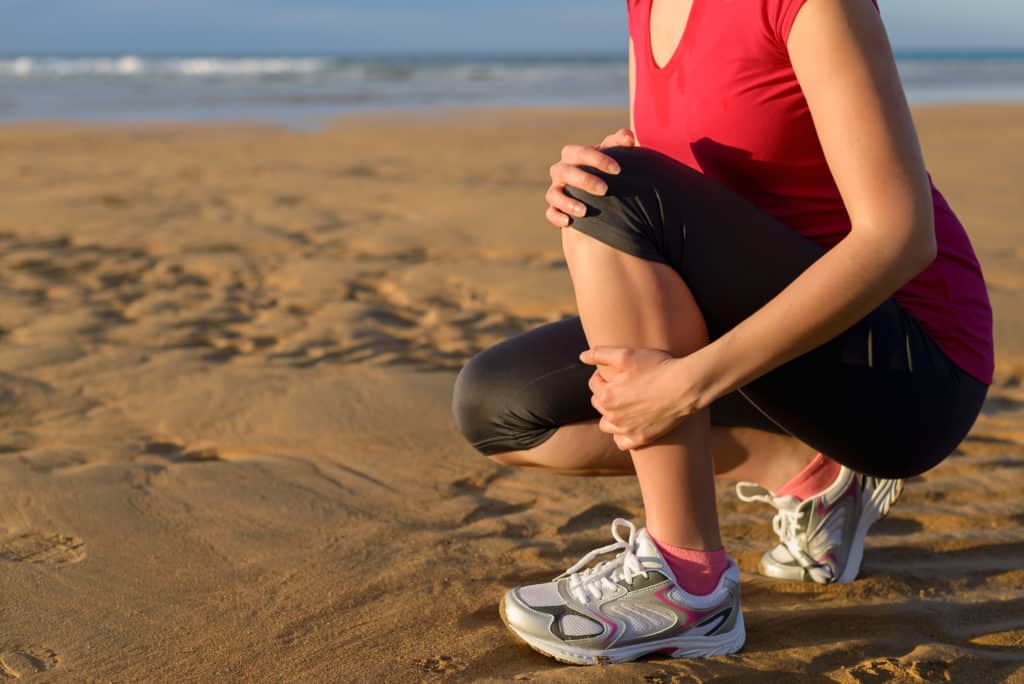
Are your knees always achy and stiff?
Do they sometimes feel like they "pop" or might "give way"?
Are you worried that you might have to give up exercising?
There are various reasons why knee pain can occur, but the most common ones are injuries, overuse, or arthritis. While knee pain can develop at any age, adults “over a certain age” are mostly more prone to suffering from knee pain.
This propensity to suffer from knee pain is mostly due to the knee joints degenerating over time, which we refer to medically as “osteoarthritis”.
The treatment for knee pain depends on the cause of the pain. In mild cases, you can treat knee pain yourself at home with rest, ice packs, and sometimes (under doctor supervision) anti-inflammatory medication.
Rarely (and only if your knee pain is chronic) may require surgery or total joint replacement.
But even if you do require surgery, most surgeons use minimally invasive techniques and keyhole surgery to repair damaged ligaments, tendons, and cartilage.
Torn ligaments and tendons can cause your knee to become unstable and sore. If the damage cannot be repaired, then this is when you might require total knee replacement.
But physical therapy at the first hint of knee pain can help you avoid having surgery and/or knee replacement.
But is it ok to carry on exercising if you have sore knees?
Simply put, if exercising worsens pain or inflammation, you should stop. Well, until you get a professional evaluation and diagnosis, at least.
Sometimes – strengthening the muscles surrounding and supporting the knee can be helpful. Increasing your activity levels to increase blood and oxygen flow and keeping the joint moving can also be helpful.
Other times, however, you could be doing more damage.
But the only way to know for sure and to put your mind at ease on whether you should stop exercising with knee pain is to consult a physical therapist to evaluate what is causing your knee pain.
Only then can we safely recommend that you continue exercising with knee pain.
More Articles From Apex
Does Running Lead to Arthritis or Make it Worse?
Getting To The Route Of The Problem Of Tennis Elbow
Gaining Weight After Losing Weight
What Causes Knee Pain?
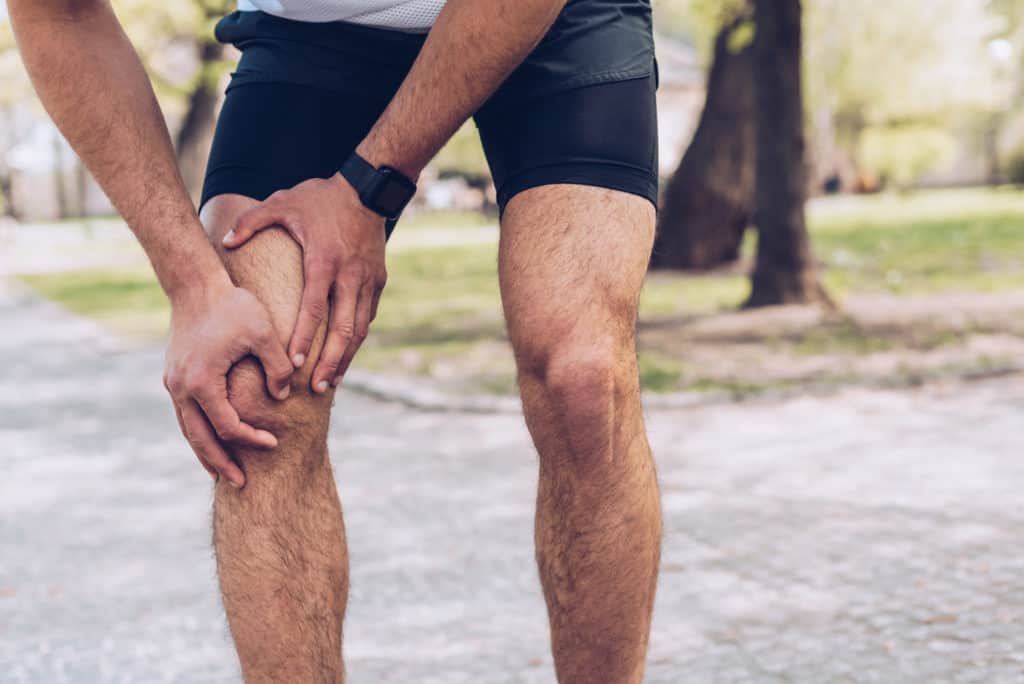
There are a variety of medical conditions or injuries that can lead to knee pain, such as:
Overuse:
When you perform the same activity repeatedly – at work or playing sports – it can cause knee pain.
Patellofemoral pain:
Also referred to as a “runner’s knee," this condition causes pain around or under the kneecap.
Osgood-Schlatter disease:
OS disease commonly occurs in kids, with swelling below the kneecap. It is mostly due to overactivity.
Tendonitis:
Affects the patella (kneecap) or quadriceps (thigh muscles) and is seen in sports players that require repetitive movements like basketball or volleyball.
Could It Be Arthritis?
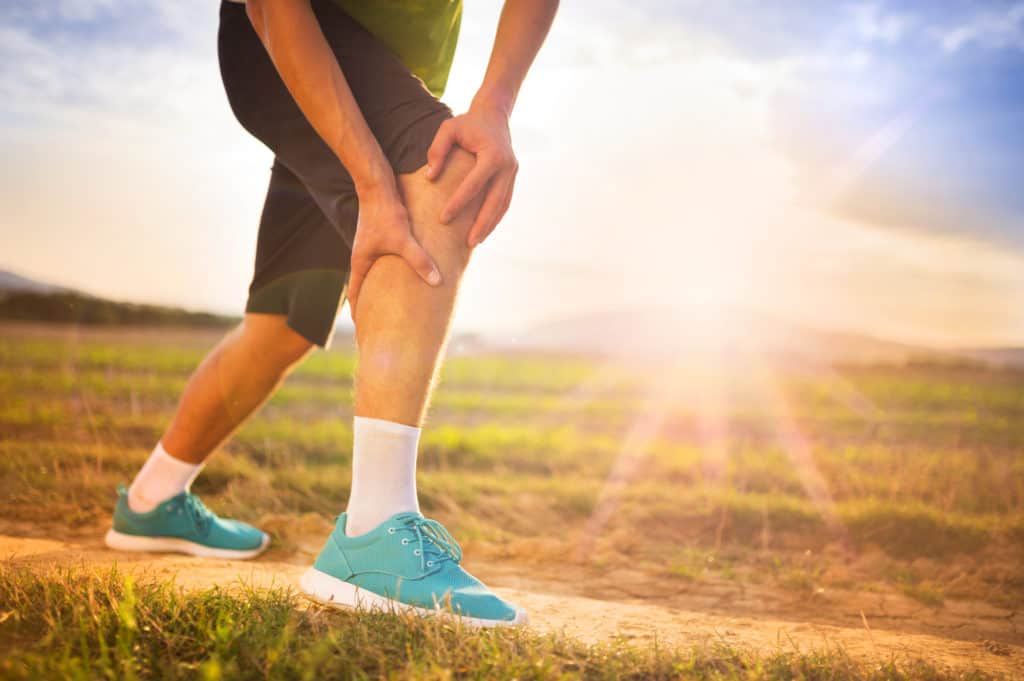
This degenerative condition can affect different joints within the body. If you suffer from arthritis in the knee, the tell-tale signs are that you’re likely to experience joint swelling that can cause severe pain.
This condition is more common in older individuals as we're more prone to arthritis as we age, and our bones suffer more wear and tear. Some of the different types of arthritis that can impact the knees are:
Being an autoimmune disease, rheumatoid arthritis affects various joints in the human body leading to inflammation and causing them to degrade. RA most commonly affects the joints in the hands, fingers, wrists, feet, and toes.
Osteoarthritis:
This condition leads to cartilage degradation in the joints over time. Your weight can play a crucial role in the health of your joints.
If you are obese, it can cause excess stress on your knee joints, which causes pain and eventually osteoarthritis.
Adopting a healthy diet and maintaining normal body weight combined with regular exercise can contribute immensely to preventing joint pain and osteoarthritis from developing.
What Injuries Could Be Causing My Knee Pain?
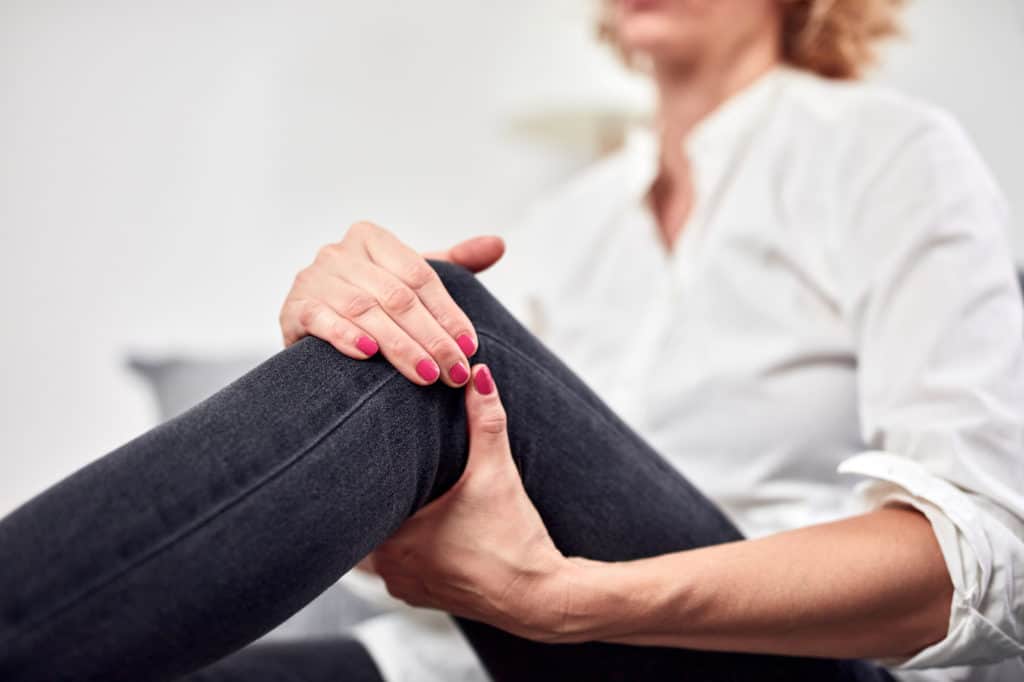
Any major injury or trauma can damage the knee joint and ligaments. Some of the common knee injuries include:
ACL or MCL ligament tear:
These are among the two most important ligaments of the knee. Any damage will destabilize the knee and cause pain.
Bursitis:
When the fluid sacs that act as a cushion in the knee joint tear it is called Bursitis and leads to inflammation of the knee joint and subsequent pain.
When the kneecap moves out of place it causes pain and is known as kneecap dislocation. This traumatic injury usually only happens as a consequence of an accident.
Tear in the meniscus:
The meniscus is a connective tissue that helps the bones in the knee move without friction. Any tear in the meniscus causes pain and inflammation.
The Dos And Don’ts When Suffering From Knee Pain
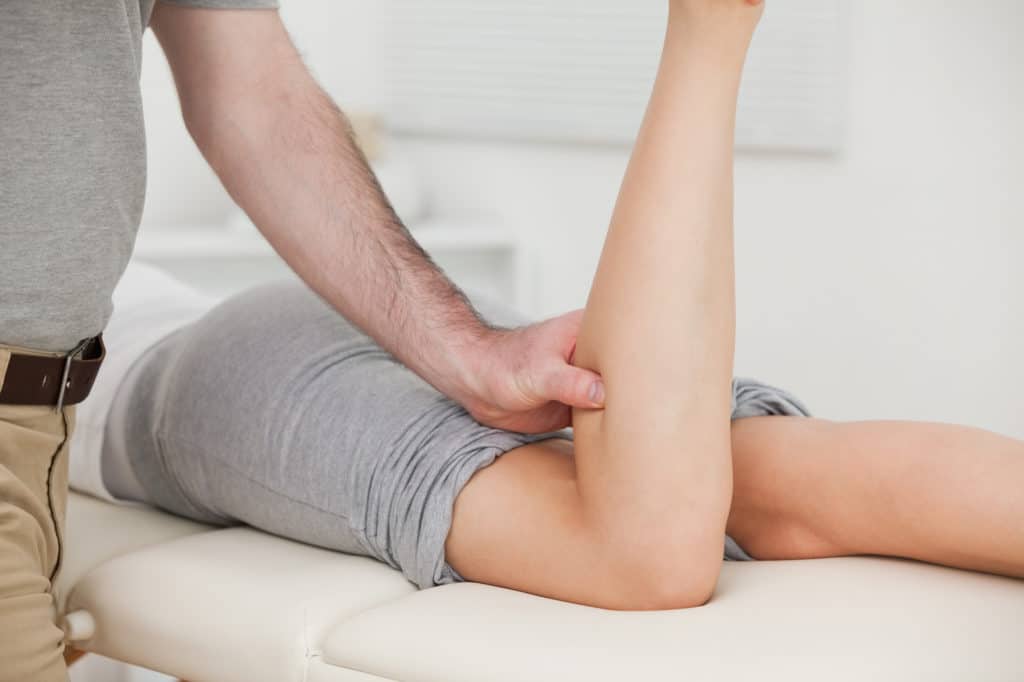
Consult a physical therapist:
Don't take any chances. Unfortunately, you only get one set of knees. So if you have knee pain that either comes on suddenly or occurs regularly, we recommend you consult a physical therapist ASAP to find and fix the underlying cause.
At Apex Orthopedic, we don’t want you to stop exercising, we just want to help you do it without pain.
Consider RICE:
One of the most popular methods of treating knee pain directly after an injury is RICE (Rest, ice, compression, and elevation).
It certainly won't fix broken bones or repair ligaments. Still, it can help reduce pain due to arthritis and minor injuries. Basically, you “Rest” the knee, use “ice” for the swelling, wrap it in a “compressed” bandage, and always try to “elevate” the knee.
Use hot/cold packs:
Within the first 2-3 days of injuring your knee, you can apply a cold pack to reduce inflammation and pain in the joint.
Use ice cubes in a plastic bag wrapped in a towel 3-4 times daily for around 15 minutes at a time. Then switch to a heating pad repeating the process 3-4 times daily.
Switching between hot and cold pads will soothe the inflammation and help to alleviate swelling and pain in the knee joint considerably.
Avoid excess rest:
Contrary to the misconception that extra rest is good, too much rest leads to weak muscles, which increases the likelihood of reinjuries.
Instead, follow an exercise regimen suited to the knees and follow it rigorously. For this, consult a physical therapist who can create a customized exercise program that helps to strengthen the knees without causing more damage (we can do this for you).
Include cardio:
While cardio exercises may not strengthen the joints, they are still beneficial for the heart as well as helping to maintain a steady weight.
Cardio exercise also contributes to keeping the muscles supple and agile and is good for building up overall strength, which is indirectly good for the knees.
Some of the best options for cardio exercises include walking, cycling, swimming, water aerobics, etc. For better balance and to relieve stiffness Tai Chi is a good option.
Try to avoid falls:
If your knee is already unstable, it increases the likelihood of experiencing a fall, which can cause further damage to the knee joint and the surrounding tissues.
Some ways you can reduce the risk of falling while at home include using a strong ladder or stool to reach things from a high shelf, holding the handrails when using the staircase, and ensuring your home is well-lit in all areas.
Do not ignore obesity:
People who are overweight and have knee pain (especially if their weight is classified as “obese”) will benefit from weight reduction because of the reduced weight on the knee joints. Even a weight loss of a few pounds or 10% of your body weight can create a big difference.
Be open to using support:
Never hesitate to use any support as a walking aid. For example, a cane or crutch will relieve stress on the knee. Similarly, using knee braces or splints improve stability.
Explore alternative therapy:
Physical therapy is the best method for treating and preventing knee pain. However, some alternative therapies can work with physical therapy in a complementary synergistic fashion.
One of the most popular is acupuncture, where very fine needles are inserted at key areas to help to alleviate pain.
Choose the right footwear:
Many people suffer from knee pain purely because of not using the right footwear that offers adequate knee support, especially when exercising.
So, it’s worth paying a little more attention when shoe/sneaker shopping. Look for insoles that are well-cushioned as they reduce extra stress on the knee joints.
If you suffer from osteoarthritis of the knee or any other leg, foot, or ankle problem, we recommend that you go one step further and get some customized insoles.
See How We Can Help You Today
If you're still not sure about whether to exercise with a knee injury, don't hesitate to call us.
Check out how you can arrange a free discovery visit so we can give you the advice that you deserve.


